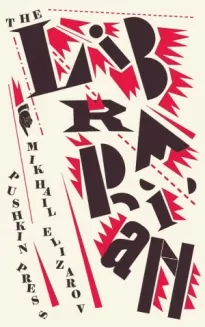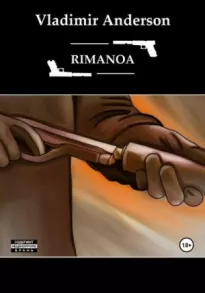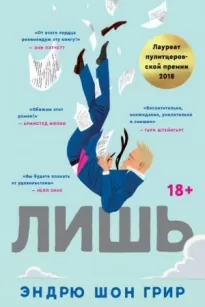The Librarian

- Автор: Михаил Елизаров
- Жанр: Современная проза / Социальная фантастика
- Дата выхода: 2015
Читать книгу "The Librarian"
IN KOLONTAYSK
BEFORE IT WA S LIGHT, the five of us—Tanya, Timofei Stepanovich, Dezhnev, Ogloblin and I—went down to the RAF. Our outfits and weapons were packed in large check bags.
I blithely slept through the journey to Kolontaysk. Tormented by a morning-after hangover, I arranged myself as comfortably as possible in the seat, and the sense of movement and the jolting lulled me until I sank into a blank sleep.
In Kolontaysk we were billeted with the reader Artem Veretenov, who had helped us in the battle with the Gorelov reading room. Veretenov lived in private-sector housing and his two-storey house could accommodate a large number of guests. We were put in the bathroom, the attic and the glazed balcony; the summer house was already taken by the more numerous readers from the Voronezh and Stavropol reading rooms. A brigade from Kostroma was in the annexe.
Of course, having such a large number of armed people around was reassuring, despite the inconvenience involved. But I realized something else: if such an impressive force had been mobilized, then a serious battle was expected. There were twenty-seven people in the Kolontaysk reading room. More than thirty fighters had gathered at Veretenov’s home, and, according to what he said, reinforcements were still turning up to join Latokhin. The people from Penza were in the Kolontayskite Sakhno’s apartment. The Vologda readers were staying with Latokhin. They were even expecting a brigade of at least two dozen from the Council of Libraries.
Such a large number of warriors indicated that the Pavliks were not merely a dangerous enemy, but also very numerous. In recent times the flourishing library had been joined by a large number of surviving remnants, copyists who had been hiding for years from the forces of the council, bands of marauders, unsuccessful thieves and other riff-raff of the Gromov world. It was anticipated that as many as a hundred warriors had already gathered under the Pavliks’ banner.
The most annoying thing was that no one could say how long we would have to wait for the Pavliks to show up—a day or a week—and the enforced idleness was depressing.
I didn’t see the town; we had been recommended not to go out for walks, and I didn’t particularly want to go outside in any case. We quickly got to know all our neighbours. When Veretenov introduced me as the librarian Vyazintsev, someone exclaimed in surprise: “So you’re alive, but we were told you’d been killed a year ago!”
Our colleagues turned out to be fine people. Associating with them was both interesting and useful. After all, I had never previously considered the highly complex mechanisms of conspiracy that allowed the reading rooms and libraries to survive in their grim reality of bloodbaths, ambushes and assassinations.
For instance, in the ordinary world the Kostroma reading room concealed itself under the guise of The Association of Lovers of Japanese Culture. The Kostromites’ librarian, Ivan Arnoldovich Kisling, was a teacher of Russian language and literature and entirely indifferent to Japan. The reading room was located in a small basement where sambo, the Russian martial art, was served up as a form of karate, and Japanese sword-fighting techniques were taught to allay suspicion. Kisling prudently charged astronomical prices that frightened off anyone who was curious. His little office was crammed with all sorts of pseudo-oriental trash that was passed off as Japanese—in case an inspection committee turned up. The “association” was an official organization, and if the militia suddenly discovered twenty-odd old dragoons’ sabres disguised as Japanese swords in the basement, the Kostromite lovers of Japan wouldn’t have any particular problems.
The reading room of the Voronezh librarian, Yevgeny Davidovich Tsofin, was concealed behind the screen of a religious organization that functioned as a kosher slaughterhouse. That gave Tsofin’s people a legitimate reason for never parting with their long knives, designed for slaughtering cattle. It should be said that Tsofin was the only Jew in their reading room. With his ginger hair, large nose and eternally dissatisfied and disgusted expression, he unfailingly rebuffed any visitors from the municipal authorities. The bureaucrats wisely preferred to stay clear of him. Only once had uninvited guests from the Jewish Centre poked their noses into the reading room by mistake, but the Voronezh readers had seen off their “kinsmen” very promptly. Soon everyone left the reading room in peace and avoided it as a place with a bad smell, which was exactly what Tsofin and his comrades had been trying to achieve. They had shown up for the battle in double-thickness kaftans as tough as wooden planks and turbans that took the place of helmets.
In their ordinary lives the Stavropol readers were a Cossack rural settlement—purely nominal, of course, as it existed only on paper. This fictitious ethnic status allowed the librarian Zarubin and the readers to carry cold weapons. Zarubin was not scrupulous about historical detail and drew his ideas mainly from the “Streltsy” of Ivan the Terrible’s time, so that, in addition to swords, pikes and whips, the reading room also made ready use of poleaxes.
The Stavropolites avoided genuine Cossack communities, just as Tsofin’s readers avoided Jews, but that didn’t prevent the “Japanese” Kisling from teasing Tsofin every now and then by offering to give him the blood of a Christian child or inviting the “Cossack” Zarubin to arrange a small pogrom against the Voronezhites.
We lived quite comfortably. Latokhin took care of everything, even our food, which was very simple: soup made with dried-pea powder, boiled grain, potatoes, bread and meat pies.
On the second day Latokhin himself dropped round to see us with some papers. Under his intent gaze I nervously applied my signature—a squiggle with a pig’s-tail flourish—to some document or other.
We were woken at night. A battered old Laz drove up to Veretenov’s house and we hastily piled into it. In the bus Veretenov handed out thermos flasks of coffee and little plastic cups.
We arrived at an immense clay quarry—the future battlefield. The quarry had not been worked for a very long time, but the reddish-brown sides bore the marks of excavators’ teeth.
Latokhin’s fully assembled army amounted to eighty-four warriors. Surrounded by a crowd of armed men, Latokhin attached an icon case containing the Book of Memory, open at the title page, to a pole. He stuck the pole into the clay and a little lamp lit up in the icon case, illuminating the pages.
As dawn approached it became clear, after several tense hours of waiting, that the Pavliks had not had not taken the bait of the Book and the battle was postponed. We set a watch and went back to our buses.
In the morning Latokhin’s lads drove up two field kitchens with goulash and a barrel of kvass. Everyone was given an orange worker’s waistcoat for a disguise, but this was just insurance—construction wastelands extended for many kilometres on all sides.
We spent the entire day encamped. At sunset the Vologda patrol, walking round the quarry, came across Pavlikite scouts. There were three of the outsiders. A brief skirmish took place; two Pavliks got away and the third, more dead than alive, was lugged to Latokhin’s headquarters.
The prisoner looked appalling, as if he had just been dragged out of a traumatology ward, totally encased in plaster, so that even his face could not be seen. The grubby grey bandages were soaked in blood and smeared with clay. I even had the absurd thought that the men on patrol had first broken the man’s bones and then rapidly applied the plaster.
But in fact he wasn’t dying of broken bones—the fatal blow had been struck by an axe, precisely between his plaster collar and the bandage on his head.
Marat Andreyevich sat down beside the wounded man with a pair of scissors. The removal of the first cast explained everything—the Pavlik’s terrible, blood-spattered costume was a well-designed suit of armour, like a medieval knight’s. Under the bandages lay not plaster, but heavy plastic, moulded to the contours of the body.
Marat Andreyevich worked away with the scissors in his habitual fashion, ripping apart the dense bandaging.
“By the way, it’s not blood on the bandages,” he jovially informed the men who had gathered round. “It’s imitation, a dye. Only I can’t understand what it’s for.”
“It’s a cunning kind of psychological pressure,” said one of the Voronezhites. “The sight of him is enough to terrify you, and at the same time it’s harder to hit someone in bandages…”
“That could well be it,” Marat Andreyevich agreed. “Their librarian used to be a theatre designer…”
The prisoner lay there stripped, like a lobster, and the sections of his shell were heaped up beside him—cuirass, chausses, poleyns and collar.
“He’s dying,” Timofei Stepanovich said behind me.
As if he had heard these words, the Pavlik took two convulsive breaths, as if he were gathering his courage, and died.
“We won’t have long to wait for our visitors now,” a patrolman said confidently. “We found a pair of binoculars up there. So they’ve been watching us. As sure as eggs, the whole band is sitting down somewhere, working through the Book of Fury. That’s a couple of hours, three at most—they’ll arrive well warmed up in time for night…”
“Comrades, librarians,” said the Kolontayskite Veretenov, running up to us. “A few minutes…”
“Alexei Vladimirovich, let’s go. Latokhin wants to see us,” said the Vologda librarian Golenishchev, adjusting his steel breast plate, worn over a leather trench coat, and striding off towards the illuminated pole with the Book. I followed him.
The improvised council of war was in full spate.
“We form up in a phalanx,” said Zarubin. “How many of us are there? Eighty-four?” He thought for a moment, calculating. “In eight rows: with three, five, seven, nine, eleven and fifteen men.”
“That’s not a phalanx, it’s a ‘pig’,” the Penza librarian Akimushkin objected. “That’s unpatriotic, old man. And I’m superstitious, too. We don’t want to share the fate of the Livonians, do we?”
“The Teutons…”
“Ah, what’s the difference? The dog knights.”
Kisling knitted his brows and declaimed in a sepulchral voice:
“The first rush of the Germans was appalling, wedging into the Russian ranks and charging straight through with two lines of horse-drawn turrets…”
“Tvardovsky?” asked Tsofin, who hadn’t spoken so far.
“D-minus, Yevgeny Davidovich! Sit down! And what does the younger generation think?”
“Simonov?” I suggested.
“That’s an A-plus!”
“I don’t understand…” Tsofin said with a humorous frown. “How can a teacher of Russian be called Kisling? I mean, Ivanov, Petrov…”
“Even Tsofin, if it comes to that…” Kisling continued acidly, and everyone smiled.
“Colleagues,” Golenishchev said in a conciliatory tone of voice. “It’s a ‘pig’ when the enemy attacks, but when it’s our own Russian men, it’s a ‘wedge’. There’s no problem here.”
“Then the question is closed,” said Latokhin. “Has anyone got a sheet of paper? Better if it’s squared—that makes it easier to draw. Aha, thank you…”
He took the notebook held out to him by Tsofin.
A minute later I glanced curiously over Latokhin’s shoulder. The truncated triangle looked like a plan of a theatre auditorium.
“The first twenty-seven numbers,” Latokhin explained, “are my reading room. And you, comrades, form the flanks.”
I chose a spot on the right, immediately behind the Kolontayskites. The Vologdaites and Stavropolites took the centre and the final rows of seventeen men consisted of readers from Penza, Kostroma and Voronezh.
“Comrades,” said Latokhin as soon as the all the squares had been distributed among the brigades. “Let’s quickly run through formation-training, so we won’t get under each other’s feet if there’s an alarm…”
Due credit to them, all the readers played their parts meticulously, without any commotion or jostling. I deliberately walked up onto a mound of clay. From a height the army, bristling with terrifying scythes, pikes, gaffs and hayforks, looked very impressive indeed.
Time after time we assembled and disbanded the wedge, and Latokhin only left us in peace when we could match a record-standard time—thirty seconds in full battle kit.
But in fact we didn’t get much rest. Half an hour later the Pavliks made a leisurely appearance at the far side of the quarry.





